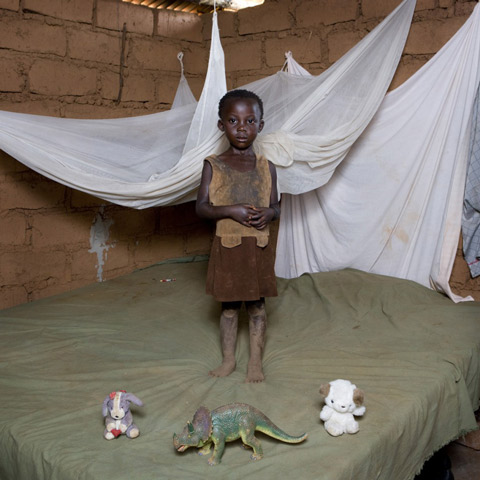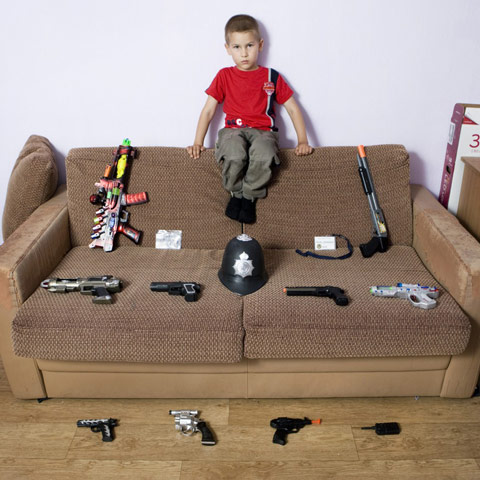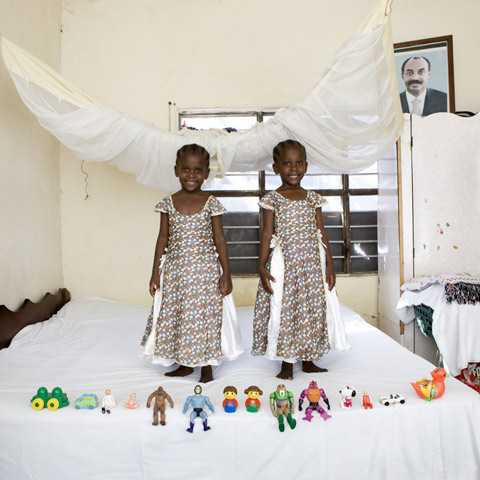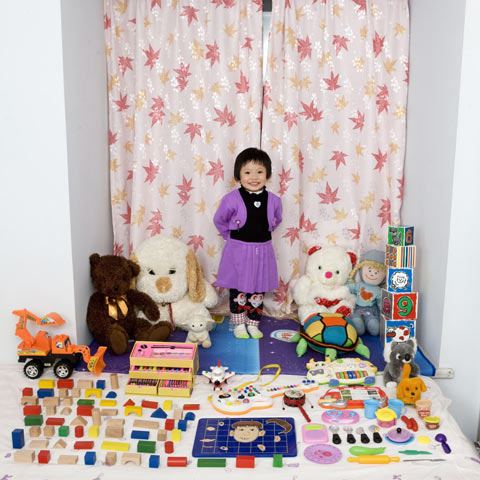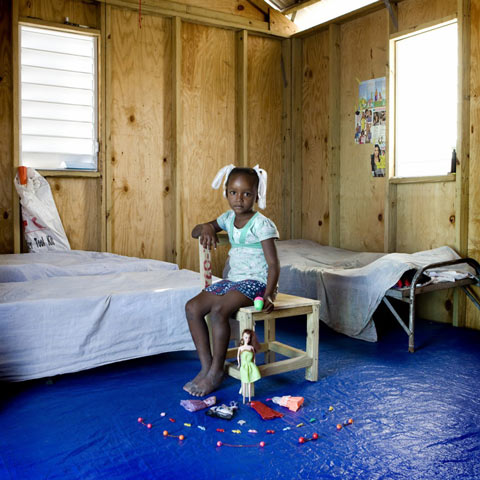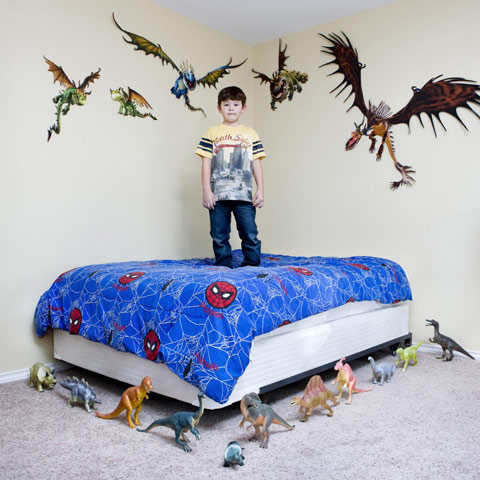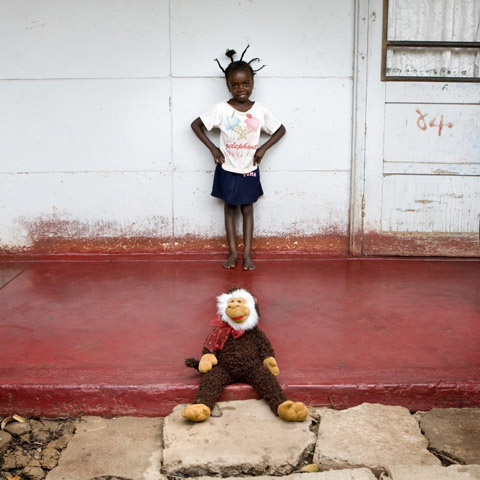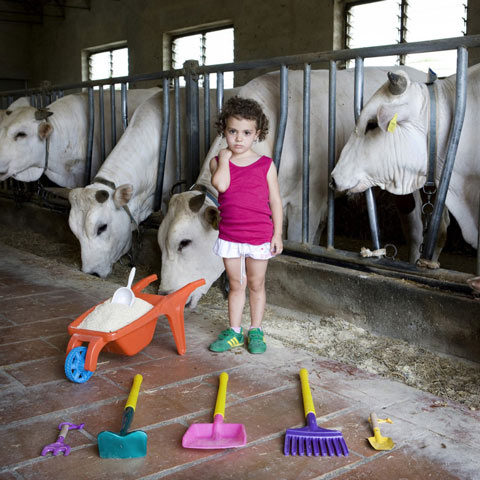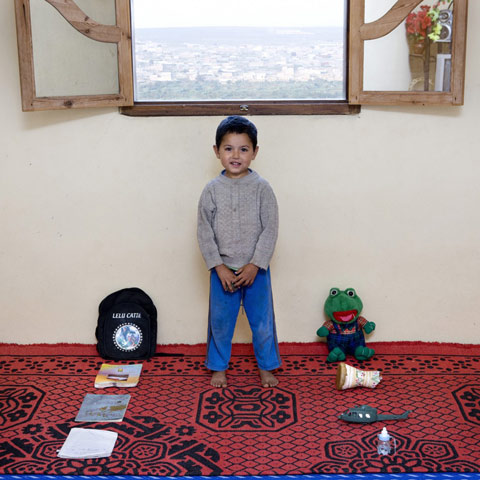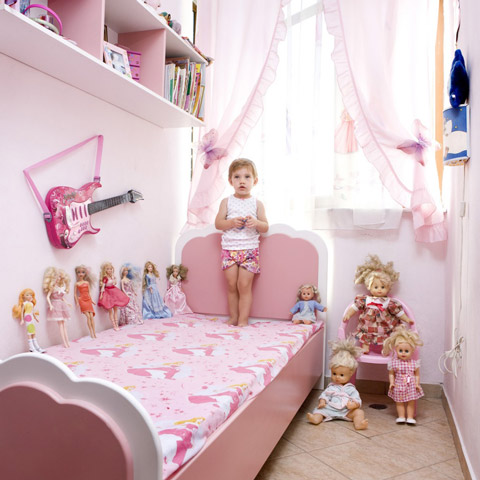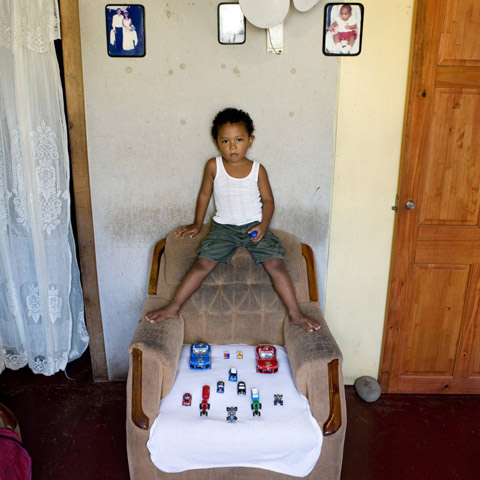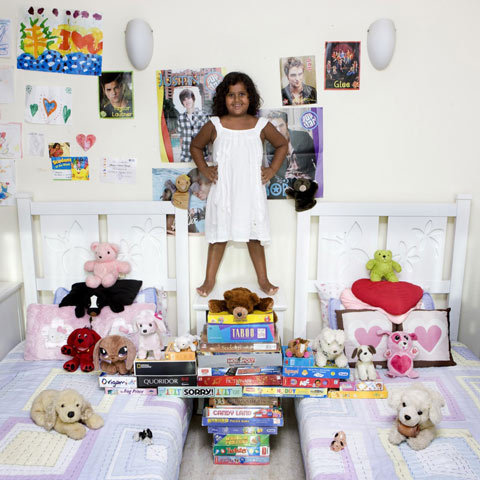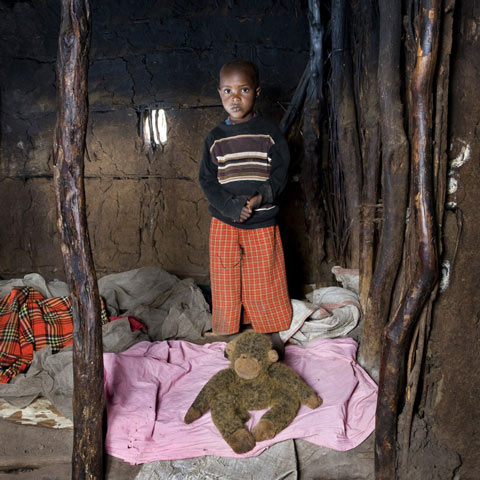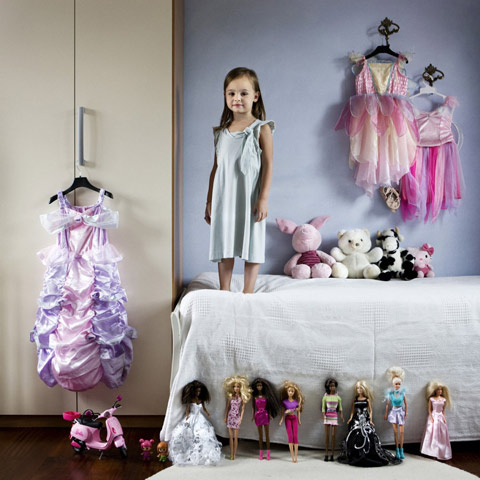My environment involves going to work and coming home to take care of my family. Where I work helps people on a daily basis. I help people maintain their bills and provide information to the many services available to help those that struggle to pay their bills. The benefit of this is seeing people struggle and not wanting to be in that position myself.
I have a support group, my family. It is important to them that I am happy and becoming an early educator is something that they know I love doing. They know my passion. They are very supportive of what I do and are always encouraging me and asking how things are going with school. My colleagues support my endeavors too. With them encouraging me to reach out and reach up it motivate me to go the extra mile.
My only difficulty is being able to afford my education and trying to keep bread on the table. I’m sure many of us have faced this challenge. I just continue putting God first and asking for continues blessing in everything I do. My life would be very difficult without my God and my family. I continue to pray and do my best. The passion I have inside of me won’t let me quit.
I cannot imaging where I would be without my supports, and you know something,I don't want to know.
Saturday, October 12, 2013
Friday, September 27, 2013
"My Connecttion to Play"
Quotes representing play”
A child loves his play, not because it’s easy, but because it’s hard.
Benjamin Spock
American pediatrician
1903–1998
Play is our brain's favorite way of learning.
Diane Ackerman
Contemporary American author
Many children today have video games and cell phones with games on them. Although there are many game to play like board game, on the phone children can play with each other even when they are in their own homes.
Back in the day we had monopoly, scrabbles, and other board games that required you to be in the same room to play and now there’s the electronic phone games that you can play from anywhere in the world. I still like the family and friends board games the old fashion way even though I play a few long distance games myself. Parents need to re-invent family game night and limit cell phone use and video games to encourage children to play and learn. I see the differences in family time and child’s play.
As a child I played outdoors every day after school winter and summer. My friends and me played, talked on the phone and had hours of fun. I played in the dirt, made mud pies, and playing school was one of my most favorite things to do. My mom played with us sometimes and this helps me and my sibling all throughout school. As a parent today my family still plays games and enjoys a lot of family time.
My favorite Play Things
JUMP-ROPE
Wednesday, September 11, 2013
Relationship Reflection
This is my family.
My oldest son, the one with the dreads is Derrick, 33 will be 34 on September 14th , the other gentle is my younger Desmond son 28 will be 29 on September 20th , my daughter Denise 14, 15 on September 19th. All of my children’s birthdays are in the same week. The other young lady if my daughter –in-law and KaAmyla (Mya) my grandson Adonis 5 and 6 on October 2nd and granddaughter Amari will be celebrating her 2nd birthday on September 20th the same day as her dads.
I have always had and still have a very close and loving relationship with my children. They are my world. I mentioned in my discussion that Desmond is away and that I’m here at he and his wife’s home to help mentally, emotionally, and financially. I intend to be here for at least the next two years and Mya is very grateful. My son has gotten involved in a legal matter and was sentenced today. He knows that I will protect his family and that I am here for him.
I don’t want to go into details let’s just say that I am a loving and supporting parent and grandparent. Whenever my children need me I am there for them. This move will allow me and my daughter-in-law to for an even closer relationship and the value of my presence is greatly appreciated. Although I know there will be disagreements and challenges I support my family and we have an opportunity to develop and even more loving relationship.
I know my grandchildren love me being here because they have come accustom to seeing me on a regular basis. They use to visit every weekend and now I’m here full time. We prepare meals together, go shopping, read, and spend a lot of quality time without the television together. Mya and I have begun to build a partnership in raising the children in the household together, the chores, the grocery list, laundry and all else that comes with family and providing children with a happy, joyous, and respectable relationship. Being in a household with two heads may present some challenges and we will look at the matter (s) as they surface and try to meet with the resolution.
Keeping my personal biases out of the relationship assure a healthy, happy and relationship in building a partnership within the family without outside influences.
Tuesday, June 25, 2013
REFLECTING ON LEARNING
I don’t need and explanation for what I have become. My most passionate hope for my future is to become a resource for early childhood education. I want to learn all there is to know about early childhood and early childhood education. Teaching young children and families about anti-biases, what is fairness, and social justice will enable me to be a part the future for all children. My passion is to excel in early childhood and grow to become a successful educator and bring value to teaching. I may not have an opportunity to teach all children and I may not be able to meet all family’s needs, but I will put all my learning experiences and knowledge towards being the best early childhood professional I can be. My passion is for the hope of the future, educating one child at a time. I am a teacher and my passion is to teach. I look forward…
My community of practice: my colleagues, my friends, my instructors, and all the early childhood professionals in the world. Those that I have met, those that I will never meet, and those that have paved a way for me to be the person I am today.
This is for all of you who have helped on my journey. I never could have made it without you. May your lives be filled with an abundance of children. May my love for you never cease. I can never measure how I feel and my gratitude will last through eternity. Thank you for being there for me. You will always be a part of me.
Thursday, June 20, 2013
Impacts on Early Emotional Development
Impacts on Early Emotional Development
I chose to focus on Nigeria. I have always wanted to visit Africa and other parts of the world. There are many children in Africa that lack in education because they lack things like good nutrition and good health. What I find interesting is that Nigeria has the highest number of malnutrition children in the world. “UNICEF estimates that 1.1 million children are threatened with severe acute malnutrition in the region, which is fuelled by poverty, insecurity and lack of access to clean water.” (Bluesmen, 2012) Many of the residents travel long periods of time to get water just to feed the animals. Children and animals drink the same water and the situation is getting worse.
“Nigeria has one of the highest rates of infant mortality in the world. One in seven children dies before her or his fifth birthday. In response, UNICEF is trying to step up efforts to bring specialist help to the most vulnerable children.”(Boehner, 2012)
Focusing on things that interfere with a child’s emotional development can help us to intervene with obstacles that could hinder that child’s development. Some examples of developmental risk that hinder a child’s growth and development: “children who experience extreme stress are at greater risk for developing cognitive, behavioral and emotional difficulties.” Encouraging children to play and explore helps them learn and develop socially, emotionally, physically and intellectually." (UNICEF, 2012)
“UNICEF strives to improve young children’s capacity to develop and learn, and to ensure that educational environments provide the tools they need to flourish. We want to ensure that no child is at a disadvantage and that all girls and boys can realize their fullest potential, both inside and outside the classroom.” (Boehner, 2012)
As an early childhood educator I will work for the benefit of children here in the United States and all over the world. We’re stomping out hunger one child at a time. Teaching children with varying disabilities is a challenge. I will equip myself with the tools to help all children learn.
“Based on new research and a new understanding of the complete well-being of the child, early child development is increasingly being put on the agenda for children’s rights. Ensuring the healthy cognitive, social and emotional development of young children merits the highest priority of every responsible government, organization, community, family and individual for the sake of raising healthy children worldwide. Reaching children in a holistic manner and incorporating health, nutrition, water and sanitation, education and interventions that support their full development are crucial.” (United Nations Children’s Fund, 2012)
Reference
United Nations Children’s Fund -UNICEF @ http://www.unicef.org/earlychildhood/index_40748.html
Saturday, June 15, 2013
The Sexualization of Childhood
What is my reaction to the ideas shared in this reading? I have seen this type of behavior in young girls. We as early childhood professionals have to teach our children to pride themselves in which they are not to exploit themselves. Children do what they see parents and other children do. They repeat what they hear. Forming habits and breaking those habits takes practice on both the parents and the child’s need to be encourage rather than discourage.
In what ways have I observed the sexualization of early childhood in my own personal and professional experiences? I have witnessed many episodes of sexual behavior among young children. Young girls with short dresses and boys with baggie pants hanging so low that they are showing their underwear this has become a new fad. Young girls wearing makeup that make them look like grown women. I have a 14 almost 15 year old daughter who is gorgeous. She tells me she is just not that confident to wear certain clothes. She has been wearing uniform to school since she started and loves to dress cute on the weekends. She now wears lip gloss and tints her eyebrows which I don’t mind because she asked if it was ok before she did it just like she ask me for my permission before she does anything. I love her style and her confidence.
I believe I am raising her the right way and I don’t worry about her doing anything out of her character. She does want to be a model right now but I keep putting it off, at least until she gets a little older. I’m just not ready for her to live that life. Now on the other side there are my grandchildren. My grandson already enjoys looking his best. He wears a tie to school even with a Tee shirt. He has started to bite the edge of his shirt and I see that as a problem in which his parents are trying to detour his actions by constantly reminding him to take his shirt out of his mouth.
What examples have I encountered in store advertisements, television, the Internet, other types of media, and/or other types of environments? Young children and teens dressing in too sexy clothing. Their doing commercials talking about sex, pregnancy, and drugs. Children should be shielded from anything that is not good for them or to them. Appropriate commercial like, Oreos and Hi C, not children hanging at the basketball court smoking pot. I have seen many commercials that I don’t care to watch again because it hurts me to see the negative side of what the message is supposed to be.
The internet is becoming too advanced. Technology has become so “right now” that some of us are afraid to send a “normal” email. The use of technology is far too open. It is too easy to view and post inappropriate activities and behaviors. I do monitor what goes on in my home and I would like to monitor every household that have children. If I could create a system it would allow all parents to monitor all children, not just their own. I would spend every cents I have to keep it up to date. I know that is sounds extreme, but I’m extreme. I am one of those parents that feel like every child in the world is mine.
How might these messages impact children and their healthy development? The impact that some messages send to children is that, It’s ok” ok to do drugs as long as you don’t get caught. Ok to show off you body because someone thinks you’re cute, messages that show the exploitation of children, the drug messages. The negative messages take away from a child’s healthy development. We as early educators can always keep moments teachable. Create a learning environment that children will want to take home. We have to remember that children depend on us as educators, as parents, as early childhood professionals, to give them good guidance so that they grow up healthy and emotionally developed.
Considering the ways that might influence gender identity, what children learn about being a girl or a boy, the expectations children may develop about gender, and other related concerns. I believe that boy and girls should have their own rooms, that they should be properly dressed in the presents of others and themselves. It’s not cute to see a little girl/boy in their underwear or without proper clothing. Teaching them about their personal belongings (body) and the importance of keeping themselves from others is one sure way to learn gender difference. The age in which a child should learn about the gender differences is or should be bases on the family’s readiness.
What can early childhood professionals do to tackle this problem and reduce the negative effects that it has on young children?
I believe that as an early childhood professional that I can teach the children in my classroom that they are important. I need to address issues in an appropriate way. I can tell the parents first about inappropriate behaviors or if I see that a child is not properly dressed for the classroom. As for me to talk to children about sexuality would be use only if it comes up and I will make it a part of the curriculum for that day or plan a lesson around it with the parents present. I know there will be times when issues need to be addressed immediately, and situations may cause for fast action, but I would like for the lessons I teach to be planned.
On page 60 and 61 of the text, it talks about “Creating a culturally consistent and respectful program. “ (Derman-Sparks & Edwards, 2011) It talks about children and their immediate family and children in their classroom and the differences in ways that they play, sleep, and learn. It is appropriate for a child to sit on a family member’s lap or to sleep in the same bed, but in a learning environment that same ac
 tivities would be in appropriate. “A culturally consistent learning environment requires teachers to learn about rules, traditions, and expectations of the families in the program.” (Derman-Sparks & Edwards, 2011, Ch. 5, p. 61)
tivities would be in appropriate. “A culturally consistent learning environment requires teachers to learn about rules, traditions, and expectations of the families in the program.” (Derman-Sparks & Edwards, 2011, Ch. 5, p. 61)Reference
Derman-Sparks, L., & Olsen Edwards, J. (2010). Anti-bias education for young children and ourselves. Washington, DC: National Association for the Educational of Young Children and Ourselves NAEYC.
Children from aroung the world
http://www.featureshoot.com/2013/03/photos-of-children-from-around-the-world-with-their-most-prized-possessions/
Saturday, June 8, 2013
Evaluating Impact for Personal Practice
Evaluating impact on personal practice
The consequences I might expect from parents when deciding to either have parent teacher conference or some type of activity where the parents are invited. The consequences I see with the children n is the looks on their faces when the parents don’t show up. Suppose I say that everyone may bring their favorite dish share.” And one child’s parent forgets, didn’t have time or was afraid another parent would criticize their dish. One child does not bring a dish would make that child will feel out of place. The likely hood of that is rare but it does happen, what should I do?
“Young children often respond by becoming competitive about who has the most new toys and certain clothing-creating a hierarchical order of has the better and the lessor. Psychologist have expressed concern not only the children are learning to relate to physical objects, especially toys, in terms of getting and giving instead of using and enjoying but also that children are learning to identify and judge themselves and others in terms of their possessions. (Kline, 1993)
I would upset and worried if a child does not feel like he belongs or feels like they’re “better or lesser” than another child. Children are equal and should be treated the same. No one child should ever be made to feel become emotionally upset or physically violent towards another child. “Children receive messages that material things are proof of love and approval.” (Derman-S [arks & Edwards, 2010) Children receive rewards for good behavior, what should they receive what they throw a tantrum or show disrespect towards others?

The consequences I might expect from parents when deciding to either have parent teacher conference or some type of activity where the parents are invited. The consequences I see with the children n is the looks on their faces when the parents don’t show up. Suppose I say that everyone may bring their favorite dish share.” And one child’s parent forgets, didn’t have time or was afraid another parent would criticize their dish. One child does not bring a dish would make that child will feel out of place. The likely hood of that is rare but it does happen, what should I do?
“Young children often respond by becoming competitive about who has the most new toys and certain clothing-creating a hierarchical order of has the better and the lessor. Psychologist have expressed concern not only the children are learning to relate to physical objects, especially toys, in terms of getting and giving instead of using and enjoying but also that children are learning to identify and judge themselves and others in terms of their possessions. (Kline, 1993)
I would upset and worried if a child does not feel like he belongs or feels like they’re “better or lesser” than another child. Children are equal and should be treated the same. No one child should ever be made to feel become emotionally upset or physically violent towards another child. “Children receive messages that material things are proof of love and approval.” (Derman-S [arks & Edwards, 2010) Children receive rewards for good behavior, what should they receive what they throw a tantrum or show disrespect towards others?

Thursday, May 23, 2013
Observing Communication
Provide an account of your observation.
The place is my son’s dining room. I, my son, my daughter and my grandson Adonis are all siting around the table having a casual conversation. Adonis is drawing on some paper and my son and my daughter are playing a game on their iPhones. I too had my phone and was inquiring about the game and how I could get it on my phone. Adonis asked if he could play “Angry Birds” on my phone and I said, “Adonis, I’m using my phone and he said ok.” Adonis said Tee Tee, that’s my daughter his aunt he calls her Tee Tee. “Can I use your phone, she said no.” Adonis then asked his dad the same question.
Conversation;
Adonis: Dad can I use your phone?
Dad: Donnie I’m using my phone.
Adonis: Dad can I use your phone?
Dad: Donnie I said I was using my phone.
Adonis is now a little anxious to get his dads phone and Adonis began to yell, “DAD CAN I USE YOUR PHONE” (repeating and with much anxiety) Dad began to yell back. “ADONIS, I notice now that Donnie is now Adonis and he says in a loud voice. “ADONIS I SAID I WAS USING MY PHONE AND YOU CAN SEE IT WHEN I’M DONE.” Adonis seen to understand then that he needed to wait until his dad was done with his game and then he could use the phone. Adonis said ok and that was the end of the conversation.
Describe what you noticed and learned.
What I noticed is that my son never lifted his head up to look at Adonis and Adonis never lifted his head either. They had a conversation without looking at each other. The conversation was interesting because I always observed Adonis and to see him interacting with his dad like that let me know that they communicate with each other.
Another thing I noticed is that Adonis kept asking for the phone until his dad yelled at him. Adonis is hyper and brilliant. He holds conversation like a ten year old and he is five. I did notice that the yelling was harmless but authoritive, because when his dad yelled at him he stops asking and patiently wait for his did to give him the phone. No matter how many times he asked for the phone he realized that he was not going to get it until his dad was done
My connections between what I observed and the effective communication strategies presented in this week’s learning resources. What could have been done to make the communication more affirming and effective?
I visit my son’s home almost every day. What I connected with is that they are comfortable with the way they do things in their household and I would be out of place as a visitor to interfere with the way they communicate. My place as a visitor was to sit and observe, but as a parent and an early childhood professional I felt what I said was in respect to Adonis and to my son.
Share your thoughts with regard to how the communication interactions you observed may have affected the child's feelings and/or any influences it may have had on the child's sense of self-worth.
I know that Adonis takes medication to help with his sometimes violent behavior me and Adonis have our own way of communicating. I don’t mind if they forget to bring his medication when he comes to spend the night. I am well equipped with the knowledge and skills to properly address his behavior and keep him focused. Adonis is an excellent five year old (from a professional point of view) however; when Adonis is in school he has good/bad days. For the most part on days his parents don’t give him his medication before he goes to school, he’s going to have a bad day. It has been proven every time they forget. His teachers understand and usually call his parents or put Adonis in an area like in the Ms. Castillo’s mentioned in the video we watched last week about family child care homes.
Offer insights on how the adult-child communication you observed this week compares to the ways in which you communicate with the children. What have you learned about yourself this week with respect to how well you talk with and listen to young children? In what ways could you improve?
I did not have a conversation with a child this week that I could relate to this week’s readings. When I think about the critical issues in early childhood education I felt that the way Adonis behaves at home is affecting how he behaves in school. I get a verbal report from his parents when I visit and seeing how things are at home I can see why he behave inappropriately at school when a teachers says he yelled a another student or to a teacher.
I would have not yelled at Adonis at all. I would have asked him in a lower toned voice to wait until I was done using the phone and he could use it and that if he did not stop asking after I had explained to him that he could use it when I was done that he would not get the phone at all. I believe that children respond to yelling with fear although Adonis is use to his dad’s disciplinary ways, Adonis has a mental disability that cause him to have with anger if he does not get his way.
“In child-centered pedagogy, power is conceptualized as a negative force held by particular groups of persons, like teachers, and used to constrain the actions of individuals such as students (Usher and Edwards, 1994). Agency, therefore, is freedom from the authority of others to be able to make rational choices and act consciously in the world (Walkerdine, 1990). By sharing authority with students, child-centered educators free children to become determiners of their own actions. Child-centered educators share authority with children in the learning process so that children become self-regulating and self-determining individuals (ibid.).”
I have witnessed this behavior and I did not interfere with the disciplinary response he received as a result of his behavior at times, even I felt bad and thought it was inappropriate because I’m grandma. His parents know how to treat his disability. I communicate with Adonis openly. This helps me to focus on when and what his reactions will be when things don’t go his way. I will tell his dad not to yell at him especially when I’m present, because I know that children respond better to softer calmer voices and the message is still clear.
References
Castillo, A. (2010) Welcome to an anti-bias learning community. [Media] Laureate Education
Inc. Walden University http://class.waldenu.edu/webapps/portal
Yelland, Nicola. (2005) Critical Issues in Early Childhood Education. McGraw-Hill Professional
Publishing. (p 100). http://site.ebrary.com/lib/waldenu/Doc?id=10175188&ppg=115
Silin, J. G. (2005 and 2008). Who can speak? Silence, voice and pedagogy. In: Yelland, N.
(Ed.) Critical issues in early childhood education. (p 81). Berkshire, Great Britain: McGraw-Hill
Education. Retrieved from:
http://site.ebrary.com.ezp.waldenulibrary.org/lib/waldenu/docDetail.action?docID=10175188
The place is my son’s dining room. I, my son, my daughter and my grandson Adonis are all siting around the table having a casual conversation. Adonis is drawing on some paper and my son and my daughter are playing a game on their iPhones. I too had my phone and was inquiring about the game and how I could get it on my phone. Adonis asked if he could play “Angry Birds” on my phone and I said, “Adonis, I’m using my phone and he said ok.” Adonis said Tee Tee, that’s my daughter his aunt he calls her Tee Tee. “Can I use your phone, she said no.” Adonis then asked his dad the same question.
Conversation;
Adonis: Dad can I use your phone?
Dad: Donnie I’m using my phone.
Adonis: Dad can I use your phone?
Dad: Donnie I said I was using my phone.
Adonis is now a little anxious to get his dads phone and Adonis began to yell, “DAD CAN I USE YOUR PHONE” (repeating and with much anxiety) Dad began to yell back. “ADONIS, I notice now that Donnie is now Adonis and he says in a loud voice. “ADONIS I SAID I WAS USING MY PHONE AND YOU CAN SEE IT WHEN I’M DONE.” Adonis seen to understand then that he needed to wait until his dad was done with his game and then he could use the phone. Adonis said ok and that was the end of the conversation.
Describe what you noticed and learned.
What I noticed is that my son never lifted his head up to look at Adonis and Adonis never lifted his head either. They had a conversation without looking at each other. The conversation was interesting because I always observed Adonis and to see him interacting with his dad like that let me know that they communicate with each other.
Another thing I noticed is that Adonis kept asking for the phone until his dad yelled at him. Adonis is hyper and brilliant. He holds conversation like a ten year old and he is five. I did notice that the yelling was harmless but authoritive, because when his dad yelled at him he stops asking and patiently wait for his did to give him the phone. No matter how many times he asked for the phone he realized that he was not going to get it until his dad was done
My connections between what I observed and the effective communication strategies presented in this week’s learning resources. What could have been done to make the communication more affirming and effective?
I visit my son’s home almost every day. What I connected with is that they are comfortable with the way they do things in their household and I would be out of place as a visitor to interfere with the way they communicate. My place as a visitor was to sit and observe, but as a parent and an early childhood professional I felt what I said was in respect to Adonis and to my son.
Share your thoughts with regard to how the communication interactions you observed may have affected the child's feelings and/or any influences it may have had on the child's sense of self-worth.
I know that Adonis takes medication to help with his sometimes violent behavior me and Adonis have our own way of communicating. I don’t mind if they forget to bring his medication when he comes to spend the night. I am well equipped with the knowledge and skills to properly address his behavior and keep him focused. Adonis is an excellent five year old (from a professional point of view) however; when Adonis is in school he has good/bad days. For the most part on days his parents don’t give him his medication before he goes to school, he’s going to have a bad day. It has been proven every time they forget. His teachers understand and usually call his parents or put Adonis in an area like in the Ms. Castillo’s mentioned in the video we watched last week about family child care homes.
Offer insights on how the adult-child communication you observed this week compares to the ways in which you communicate with the children. What have you learned about yourself this week with respect to how well you talk with and listen to young children? In what ways could you improve?
I did not have a conversation with a child this week that I could relate to this week’s readings. When I think about the critical issues in early childhood education I felt that the way Adonis behaves at home is affecting how he behaves in school. I get a verbal report from his parents when I visit and seeing how things are at home I can see why he behave inappropriately at school when a teachers says he yelled a another student or to a teacher.
I would have not yelled at Adonis at all. I would have asked him in a lower toned voice to wait until I was done using the phone and he could use it and that if he did not stop asking after I had explained to him that he could use it when I was done that he would not get the phone at all. I believe that children respond to yelling with fear although Adonis is use to his dad’s disciplinary ways, Adonis has a mental disability that cause him to have with anger if he does not get his way.
“In child-centered pedagogy, power is conceptualized as a negative force held by particular groups of persons, like teachers, and used to constrain the actions of individuals such as students (Usher and Edwards, 1994). Agency, therefore, is freedom from the authority of others to be able to make rational choices and act consciously in the world (Walkerdine, 1990). By sharing authority with students, child-centered educators free children to become determiners of their own actions. Child-centered educators share authority with children in the learning process so that children become self-regulating and self-determining individuals (ibid.).”
I have witnessed this behavior and I did not interfere with the disciplinary response he received as a result of his behavior at times, even I felt bad and thought it was inappropriate because I’m grandma. His parents know how to treat his disability. I communicate with Adonis openly. This helps me to focus on when and what his reactions will be when things don’t go his way. I will tell his dad not to yell at him especially when I’m present, because I know that children respond better to softer calmer voices and the message is still clear.
References
Castillo, A. (2010) Welcome to an anti-bias learning community. [Media] Laureate Education
Inc. Walden University http://class.waldenu.edu/webapps/portal
Yelland, Nicola. (2005) Critical Issues in Early Childhood Education. McGraw-Hill Professional
Publishing. (p 100). http://site.ebrary.com/lib/waldenu/Doc?id=10175188&ppg=115
Silin, J. G. (2005 and 2008). Who can speak? Silence, voice and pedagogy. In: Yelland, N.
(Ed.) Critical issues in early childhood education. (p 81). Berkshire, Great Britain: McGraw-Hill
Education. Retrieved from:
http://site.ebrary.com.ezp.waldenulibrary.org/lib/waldenu/docDetail.action?docID=10175188
Saturday, May 18, 2013
“Creating an Anti-bias Learning Community”
Imagine that you want to open your own Family Child Care Home. Reflect on what your setting would look like, what elements you think you might want to include and for what reasons, and the various ways that you will strive to ensure that every child and family feels welcome and respected.
“The environment rich in anti-bias materials invite exploration and discovery and supports children’s play and conversation in both emergent and planned activities.” (Derma-Sparks & Edwards, 2010)
A family child care home that I feel would welcome children and their families would be very similar to Ms. Castillo’s home. The entrance would have a warm and friendly atmosphere that when you walk into my home there will be a place for children’s special belongings like a place to put their coats in the winter months and where parents can pick-up information for students.
The looks around the rooms: “anyone who enters your classroom can tell immediately who is in your program at that time.” (Derma-Sparks, 2010) The will be pictures of the children in my program and pictures of each child’s family. There will be a welcome to our school sign posted with bright welcoming colors and my name in many different languages. Ms. Castillo has some wonder rooms in her home and it gave me a lot of ideas to use when setting up my family child care home.
I would have many rooms for learning and fun. Anti- bias materials are important for all the rooms because it teaches children that anti-biases are present everywhere. The reading rooms will have shelves filled with books that teach children about children and their relationships with other children and other people. The play room will be filled with toys and books that represent children and families. The area for curriculum activities will represent people that have made a different in the lives of children and have made a mark on the world. All the materials will be appropriate for the classroom and will be centered on the curriculum for that room.
I would like to include in my family child care home, picture that display working families and pictures that demonstrate the community in which they live and where other children like them live too. There will be an area for rest and an area for play: An area for learning an area to start the day. Pictures of children learning in the classroom and displaying diversity a message of what happens in everyday life around the world. It is important that children learn about other cultures and how children learn and play, and how they interact with other and the many different ways that children live in other cultures.
“The first step in creating an ideal caring learning environment in classrooms and schools is to pose the following question to the policy-makers, teachers, leaders and parents of the school community: Are you aware that the daily culture of the school is the primary factor that supports students’ development and academic learning?” (Gibbs, 2013)


“The environment rich in anti-bias materials invite exploration and discovery and supports children’s play and conversation in both emergent and planned activities.” (Derma-Sparks & Edwards, 2010)
A family child care home that I feel would welcome children and their families would be very similar to Ms. Castillo’s home. The entrance would have a warm and friendly atmosphere that when you walk into my home there will be a place for children’s special belongings like a place to put their coats in the winter months and where parents can pick-up information for students.
The looks around the rooms: “anyone who enters your classroom can tell immediately who is in your program at that time.” (Derma-Sparks, 2010) The will be pictures of the children in my program and pictures of each child’s family. There will be a welcome to our school sign posted with bright welcoming colors and my name in many different languages. Ms. Castillo has some wonder rooms in her home and it gave me a lot of ideas to use when setting up my family child care home.
I would have many rooms for learning and fun. Anti- bias materials are important for all the rooms because it teaches children that anti-biases are present everywhere. The reading rooms will have shelves filled with books that teach children about children and their relationships with other children and other people. The play room will be filled with toys and books that represent children and families. The area for curriculum activities will represent people that have made a different in the lives of children and have made a mark on the world. All the materials will be appropriate for the classroom and will be centered on the curriculum for that room.
I would like to include in my family child care home, picture that display working families and pictures that demonstrate the community in which they live and where other children like them live too. There will be an area for rest and an area for play: An area for learning an area to start the day. Pictures of children learning in the classroom and displaying diversity a message of what happens in everyday life around the world. It is important that children learn about other cultures and how children learn and play, and how they interact with other and the many different ways that children live in other cultures.
“The first step in creating an ideal caring learning environment in classrooms and schools is to pose the following question to the policy-makers, teachers, leaders and parents of the school community: Are you aware that the daily culture of the school is the primary factor that supports students’ development and academic learning?” (Gibbs, 2013)

Wednesday, May 8, 2013
FIVE WAYS TO ANALYZE CLASSROOMS FOR AN ANTI-BIAS APPROACH
ONE: EVERYDAY AND EVERYWHERE
You may feel overwhelmed when you first begin to think about bias and anti-bias. You may suddenly begin to see bias everywhere - in the newspaper, on the television, or on the bus on your way to work. You may be saddened by the subtle, unspoken messages in children's books or games.
As you struggle with the issues and images, you may also become aware of the wonder of people around you. You may make new friends from diverse cultures. You may explore your own history or the history of those around you. You may find leaders today who are like you or very unlike you.
Although you now recognize that both bias and the possibility of anti-bias exists, you may not know just what to do. But at least you know that something must be done. This is the most important step in your journey; you have recognized that choices matter and that you can make choices that support both you and the children and families you serve.
For children, remember that it is what you make available to them (not what is in the closet), that will affect their growth today. We don't know which day is the most important in a child's life. As a result, anti-bias concepts must be a continuous part of the curriculum rather than being presented as occasional "scheduled" activities. This doesn't mean that everything related to every issue of bias is displayed everyday. Rather, messages about bias and anti-bias are everywhere, everyday. One child may remember only the books you have, another only the music you play. Make a conscious decision to include some anti-bias concept somewhere, everyday.
TWO: MIRRORS TO SELF-ESTEEM
All children need positive self-esteem. Some, however, see positive messages everywhere without trying. Others never see themselves positively in the world around them. Base your selection of materials on the context of the children you serve. If positive images abound for your children, begin to think about how to bring diversity and balance into the classroom. If society's images are not very positive for your children, make your classroom a safe island in a hostile world.
THREE: WINDOWS TO DIVERSITY AND BALANCE
All children experience diversity because our world is diverse. The key question is whether this diversity is perceived as positive or negative. Think about who the "other" is as you work toward opening windows to diversity and balance.
If your classroom is naturally diverse racially and culturally, for example, you will not have to worry about providing opportunities for interactions between diverse groups of children. You will focus instead on how to promote positive interactions between the children.
If your classroom has little diversity, build first on the differences that are there. Start with boys and girls, for example. As you help children recognize and respect the diversity of others, pay careful attention to how this "other" is generally perceived by the community you serve. The balance of diversity you bring into this classroom is what will be different, based on the context of the children who are there.
Balance, on the other hand, doesn't just mean 50/50. It means evaluating the context of the children in your classrooms and the larger society. Some children need more positive images of themselves in your classroom because such images can't be found in their community. Others need positive images of people who are different from them because the community already includes images like your children, but not of other people.
Take care not to degrade someone you think is not present. We may not know which child is adopted, or whose parent is unemployed. Listen to the children. Answer their spoken questions. Also try to answer unspoken questions about diversity that may not be so obvious. Help your children be sensitive to others, and to not be afraid for themselves.
FOUR: CULTURALLY APPROPRIATE, HISTORICALLY ACCURATE, AND NON-STEREOTYPICAL
It is impossible for all anti-bias classrooms to look the same! Each classroom serves different children with different families and different staff in different communities. Programs and families should take time to make conscious decisions about how they look and act in these actual contexts.
If your classroom or community is not diverse, or if you don't have personal experience with diversity, make sure any image of diversity you bring is accurate and non-stereotypical. Portraying Native Americans in traditional costumes tells children little about Native Americans today and can foster stereotypes. Providing accurate images may mean more work for you, but it is important because of the subtle messages that children will receive.
Be open to hearing other points of view. Reflecting on your own childhood, and on the lessons you learned, may help you imagine how a message is perceived by a child today. Families and staff must work together to sort through these issues.
FIVE: CRITICAL THINKING AND ACTIVISM
Child care professionals cannot protect children from the realities of life. We can, however, build the child's strengths. Children can develop skills to evaluate our world for respect and diversity. Talking about a book that is biased can help children think about why it is biased, and what they might do about it.
Caring for others and ourselves requires attention from all of us. Help the children and families in your program develop the skills needed to work toward anti-bias. Learning how to do this in the child care setting helps the future leaders and workers of our world know how to do it in their homes, work and communities.
REFERENCES
Council on Interracial Books for Children. (1980). *Guidelines for selecting bias-free textbooks and storybooks*. New York: Author.
Derman-Sparks, L., & the A.B.C. Task Force (1989). *Anti-bias curriculum: Tools for empowering young children*. Washington, DC: National Association for the Education of Young Children.
The images of "mirrors and windows" is based on unpublished materials from Emily Style of the Wellesley College Center for Research on Women, Project S.E.E.D. (Seeking Educational Equity and Diversity).
You may feel overwhelmed when you first begin to think about bias and anti-bias. You may suddenly begin to see bias everywhere - in the newspaper, on the television, or on the bus on your way to work. You may be saddened by the subtle, unspoken messages in children's books or games.
As you struggle with the issues and images, you may also become aware of the wonder of people around you. You may make new friends from diverse cultures. You may explore your own history or the history of those around you. You may find leaders today who are like you or very unlike you.
Although you now recognize that both bias and the possibility of anti-bias exists, you may not know just what to do. But at least you know that something must be done. This is the most important step in your journey; you have recognized that choices matter and that you can make choices that support both you and the children and families you serve.
For children, remember that it is what you make available to them (not what is in the closet), that will affect their growth today. We don't know which day is the most important in a child's life. As a result, anti-bias concepts must be a continuous part of the curriculum rather than being presented as occasional "scheduled" activities. This doesn't mean that everything related to every issue of bias is displayed everyday. Rather, messages about bias and anti-bias are everywhere, everyday. One child may remember only the books you have, another only the music you play. Make a conscious decision to include some anti-bias concept somewhere, everyday.
TWO: MIRRORS TO SELF-ESTEEM
All children need positive self-esteem. Some, however, see positive messages everywhere without trying. Others never see themselves positively in the world around them. Base your selection of materials on the context of the children you serve. If positive images abound for your children, begin to think about how to bring diversity and balance into the classroom. If society's images are not very positive for your children, make your classroom a safe island in a hostile world.
THREE: WINDOWS TO DIVERSITY AND BALANCE
All children experience diversity because our world is diverse. The key question is whether this diversity is perceived as positive or negative. Think about who the "other" is as you work toward opening windows to diversity and balance.
If your classroom is naturally diverse racially and culturally, for example, you will not have to worry about providing opportunities for interactions between diverse groups of children. You will focus instead on how to promote positive interactions between the children.
If your classroom has little diversity, build first on the differences that are there. Start with boys and girls, for example. As you help children recognize and respect the diversity of others, pay careful attention to how this "other" is generally perceived by the community you serve. The balance of diversity you bring into this classroom is what will be different, based on the context of the children who are there.
Balance, on the other hand, doesn't just mean 50/50. It means evaluating the context of the children in your classrooms and the larger society. Some children need more positive images of themselves in your classroom because such images can't be found in their community. Others need positive images of people who are different from them because the community already includes images like your children, but not of other people.
Take care not to degrade someone you think is not present. We may not know which child is adopted, or whose parent is unemployed. Listen to the children. Answer their spoken questions. Also try to answer unspoken questions about diversity that may not be so obvious. Help your children be sensitive to others, and to not be afraid for themselves.
FOUR: CULTURALLY APPROPRIATE, HISTORICALLY ACCURATE, AND NON-STEREOTYPICAL
It is impossible for all anti-bias classrooms to look the same! Each classroom serves different children with different families and different staff in different communities. Programs and families should take time to make conscious decisions about how they look and act in these actual contexts.
If your classroom or community is not diverse, or if you don't have personal experience with diversity, make sure any image of diversity you bring is accurate and non-stereotypical. Portraying Native Americans in traditional costumes tells children little about Native Americans today and can foster stereotypes. Providing accurate images may mean more work for you, but it is important because of the subtle messages that children will receive.
Be open to hearing other points of view. Reflecting on your own childhood, and on the lessons you learned, may help you imagine how a message is perceived by a child today. Families and staff must work together to sort through these issues.
FIVE: CRITICAL THINKING AND ACTIVISM
Child care professionals cannot protect children from the realities of life. We can, however, build the child's strengths. Children can develop skills to evaluate our world for respect and diversity. Talking about a book that is biased can help children think about why it is biased, and what they might do about it.
Caring for others and ourselves requires attention from all of us. Help the children and families in your program develop the skills needed to work toward anti-bias. Learning how to do this in the child care setting helps the future leaders and workers of our world know how to do it in their homes, work and communities.
REFERENCES
Council on Interracial Books for Children. (1980). *Guidelines for selecting bias-free textbooks and storybooks*. New York: Author.
Derman-Sparks, L., & the A.B.C. Task Force (1989). *Anti-bias curriculum: Tools for empowering young children*. Washington, DC: National Association for the Education of Young Children.
The images of "mirrors and windows" is based on unpublished materials from Emily Style of the Wellesley College Center for Research on Women, Project S.E.E.D. (Seeking Educational Equity and Diversity).
Wednesday, April 24, 2013
Time Well Spent: So long, farewell: See you in my future.
The roads we travel and the people we meet.
As I began this class I bought my hopes and dreams, my inspiriting and my disconforts. When I met my online colleagues, I knew they were my supporters. I have learned one thing that mean so much to me. No matter how far we are apart we were a team. I will always charest my learning experiences and the information that I picked up from each of you and Dr. Teri I appreciate you too. Thank you for helping me to accompolish my dream, a Master in Early Education, is now a reality.
I learned to make a “wordle” something I had never done, I learned to about my biased, did’nt know I had them, and I’ve learned that I need all of you today, tomorrow, and forever.
I will not forget the people I met in the 2011-2013 Masters of Early Childhood Studies, Master’s Degree Program
Thank you.
http://www.sde.ct.gov/sde/cwp/view.asp?a=2678&q=320796
As I began this class I bought my hopes and dreams, my inspiriting and my disconforts. When I met my online colleagues, I knew they were my supporters. I have learned one thing that mean so much to me. No matter how far we are apart we were a team. I will always charest my learning experiences and the information that I picked up from each of you and Dr. Teri I appreciate you too. Thank you for helping me to accompolish my dream, a Master in Early Education, is now a reality.
I learned to make a “wordle” something I had never done, I learned to about my biased, did’nt know I had them, and I’ve learned that I need all of you today, tomorrow, and forever.
I will not forget the people I met in the 2011-2013 Masters of Early Childhood Studies, Master’s Degree Program
Thank you.
http://www.sde.ct.gov/sde/cwp/view.asp?a=2678&q=320796
Friday, April 12, 2013
Jobs/Roles in the ECE Community: Internationally
ADOPTION AVENUES http://www.adoptionavenues.org/index.html
Adoption Avenues Agency is an agency that opens new avenues to better and safer lives for orphans all over the world. A.A.A. is a non profit international adoption agency, licensed by the state of Oregon. "Our agency was founded by people with great and long experience in international adoptions and working with orphan children overseas".
Hague accredited
for incoming children.
View our License
http://www.adoptionavenues.org/programs.html
There were no job postings on this site. I would like very much to be a part of the process of getting children with https://www.iss.edu/education-careers/careers-for-educators
INTERNATIONAL SCHOOL SERVICES
Job Requirements:
Requirements
Teachers | Librarians | Counselors | Administrators
While each school sets its own criteria for hiring teachers, ISS makes it a point to vet potential candidates using a guideline of minimum standards and requirements. View Documentation Requirements.
Teachers
1. Bachelor's degree or higher
2. One of the following:
- At least two (2) years of current teaching experience in your own K-12 classroom. Note: College/university level teaching and student teaching do not qualify as two years of experience.
- Teaching certification
Librarians
1. Master's degree in Library Science
2. One of the following:
- At least two (2) years of current librarian experience in a K-12 environment. Note: College/university level librarian experience and community library experience do not qualify as two years of experience.
- Librarian certification from the Board of Education in your state
Counselors
1. Master's degree
2. At least 2 years of current counseling experience in a K-12 environment. Note: College/university level counseling, community counseling and counseling internships do not qualify as two years of experience.
Administrators
Please visit this page for more information on Administrative Recruitment.
Did you know?Schools prefer to hire single teachers or couples who are both teachers. See what else recruiters are looking for »
Documentation
All documents can be uploaded. For your reference, below is a comprehensive list of all documents needed for your file. When uploading files, please keep the size under 1MB. For photos, we recommend JPEG or JPG. For all other documents, Word or PDF format is preferred. You do not have to wait to submit your application in order to upload documents. You can add documents to your file at any time by using the ‘Upload Additional Documents’ link located in your candidate dashboard.
How should letters of recommendation be submitted?
Required Documents
- Two (2) confidential supervisory references from within the past seven (7) years
- Partner Statement (if applicable)
All ISS members are encouraged to obtain a confidential reference from their current administrator. At a minimum, you are required to provide a confidential reference from two supervisors from within your past seven years of experience. Having a reference from your current supervisor is what recruiters prefer. We understand this may not always be feasible, but not doing so may impact your candidacy. Please bear in mind, recruiters will, at some stage, expect you to have a recommendation from your current supervisor before going further in the process. Schools will contact you first and interview you if they are interested, and will then seek a reference from your current supervisor. You should be prepared to request a confidential recommendation from your current supervisor at this time if it is not already a part of your profile. ISS has made it easy for you to do this online or via email. As you complete your membership application, you will be asked to supply at least two references and their email addresses. Upon our initial approval of your application, ISS will then send your references a link to complete a confidential recommendation form on your behalf. This form is easy to complete, no more than ten minutes of their time, and can be sent back to ISS directly. This process is easy for all involved, as it has been streamlined in hopes of getting each person’s membership active quickly!
Additional Documents to Complete Your Profile
While submission of these documents is optional, please know that recruiters would like to review them. So that your dossier represents you well, you are encouraged to include the following documents in your file:
- Supervisory references covering all experiences within the last 7 years
- Personal Statement
- Official transcripts or PDF copies of official transcripts of your highest degree earned
- Copies of current credentials
- Photo
- Resume
- Reference list
You can submit other (optional) documents to ISS, including:
- Philosophy of Education
- Portfolio items
- Additional letters of recommendation
Teaching jobs Overseas
Teaching Jobs Overseas: arrow WANTED: Class teachers, Mathematics, Science, English, Spanish, French, Mandarin, Social Studies, PE, Art, Music, Special Ed, Drama, Computers, Economics, Business Studies, Literacy, ToK, Learner Support, etc.
Early Years, Kindy, Primary, Secondary – Jakarta, Indonesia
10 Apr 2013
Teaching Jobs Overseas: arrow WANTED: Principals, Department Heads, Counselors, Librarians and other educators needed. New vacancies posted daily!
http://www.joyjobs.com/tips/index.html
I cannot get a list of requirements without signing up. I would like to work overseas for the experience of learning new ways to teach as well as being able to use some of my teaching techniques.
Search Results
International Schools Services
https://www.iss.edu/
Friday, March 29, 2013
Jobs/Roles in the ECE Community: National/Federal Level
Exciting Early Childhood Education Teacher Opportunities
Job Details
Location: Arlington, TX
Category: Education / Training
Job Type: Full time
Posted: Mar 25
Job Responsibilities
Our trans-disciplinary teams in Brockton, Fall River, Lowell and Worcester provide treatment and support to over 1,000 families each year through our community and home-based services. Trans-disciplinary teams may include Educators, Social Workers, Nurses and Speech, Physical, and Occupational Therapists.
Requirements
As an Early Childhood Educator, you will receive training after hiring, but you need to be highly organized with solid time management skills as well as adaptable to a fast paced work environment.
Specific Qualifications Include
•Bachelor's level degree in with a major or concentration in infants and toddlers including Early Intervention and Early Childhood Education, Child Development or Child Studies, Education or Special Education.
•Experience with infants, toddlers and families preferred.
•A flexible work schedule
This job interests me because it provides training, require only a Bachelor’s degree and offers great benefits.
Early Childhood Education Teacher- Arlington, TX
Requirements
•A CDA or Associates degree in Child Development, ECE, or related field is required for consideration; a Bachelor's degree is strongly preferred. A minimum of 12 ECE/Child Development units are expected for consideration.
•1-2 years of prior experience working as a member of a classroom team with ECE age groups is strongly preferred.
•CCLC strives to hire the best-in-class teachers; individuals who possess a genuine passion for caring for children, as well as a strong set of communication and interpersonal skills. We are seeking positive parent-teacher communicators who are interested in a sense of ownership over curriculum and the center's culture.
I chose this one because I already have some of the qualifications/requirements and will soon be experiencing the classroom environment.
Preschool Teachers IL-Champaign-Urbana
Peter Pan Too Learning Center
Job Title: Preschool Teachers
Type: Full time
Category: Education, Training and Library
Address: Urbana, IL
About the Job
Peter Pan Too Learning Center is seeking mature, dependable, and nurturing infant/toddler teachers to develop curriculum and care for children ages 4wks-23mos. Must possess 60 hours of college credit with 6-18 hours in ECE. 8:30am-5:30pm. Must have health exam, transcripts & references, fingerprint and background check. Immediate opening. For more information call Yvette Brown at 363-3884
Early Head Start Teacher II Roanoke, VA
TAP, Early Head Start
Job Title: Early Head Start Teacher II
Type: Full time
Category: Education, Training and Library
Address: Roanoke, VA
About the Job
Education Teacher II Rockbridge County Early Head Start The Early Head Start Teacher II is the primary caregiver for 4 infant/toddlers and works w/all service areas and classroom staff/volunteers to ensure successful, nurturing exp. for infants and toddlers. The Teacher II also works w/parents in setting goals for their children in the program, while recognizing the parents as the most important influence in the lives of their children. Requires Infant/toddler Child Development Associate Credential (CDA) and/or VA Early Childhood Certificate for Infants/Toddlers. BS/BA or AAS degree w/concentration in early childhood development or related field (preferred). 2 yrs. classroom exp. in working w/infants and toddlers (preferred). Salary: $10.00 to $14.00/hr. FT w/benefits. Position is located in Buena Vista, VA. Open until filled. Submit cover letter, and resume to TAP, Human Resources, job code: TII-EHS, PO Box 2868, Roanoke, VA 24001-2868 or www.tapintohope.org. For more information about the jobs listed or about TAP, see our website: www.tapintohope.org Fax: 540-345-1944 TTY: 540-345-4096 AA/EOE/Drug Free Workplace Bilinguals encouraged to apply.
I have chosen this job because I am capable of performing all the requirements. I will be a great asset to these schools/centers.
More jobs
CCLC-Children’s Creative Learning Center
“CCLC is a nationally recognized, high-quality professional child care organization. As an employer and a business, our mission is to engage, reward and retain the top talent in our industry to drive our organization as it continues to deliver high-caliber care and education to the next generation through the implementation of best practices in the early childhood education field, including our proprietary Guided Discovery™ Curriculum.”
“CCLC is dedicated to NAEYC accreditation. Our centers offer strong team environments with a commitment to appropriate learning experiences for children and their families. As an employer, CCLC offers excellent salaries, medical, dental, and vision benefits, 401(k) with company match, life insurance, tuition reimbursement, and paid time off (personal time, vacation and holidays). We are an equal opportunity employer.”
Retrieved from Bright @ http://www.bright.com/jobs/job/147291_jhp50378gfy5wlvl818/?bfid=42&ref=jobrapido-external&utm_source=jobrapido&utm_medium=cpc&utm_campaign=jobrapido-cpc
Visit: Early Childhood Teachers Jobs @jobrapido- http://us.jobrapido.com/?w=early%20childhood%20teacher&l=&ft=1
Job Details
Location: Arlington, TX
Category: Education / Training
Job Type: Full time
Posted: Mar 25
Job Responsibilities
Our trans-disciplinary teams in Brockton, Fall River, Lowell and Worcester provide treatment and support to over 1,000 families each year through our community and home-based services. Trans-disciplinary teams may include Educators, Social Workers, Nurses and Speech, Physical, and Occupational Therapists.
Requirements
As an Early Childhood Educator, you will receive training after hiring, but you need to be highly organized with solid time management skills as well as adaptable to a fast paced work environment.
Specific Qualifications Include
•Bachelor's level degree in with a major or concentration in infants and toddlers including Early Intervention and Early Childhood Education, Child Development or Child Studies, Education or Special Education.
•Experience with infants, toddlers and families preferred.
•A flexible work schedule
This job interests me because it provides training, require only a Bachelor’s degree and offers great benefits.
Early Childhood Education Teacher- Arlington, TX
Requirements
•A CDA or Associates degree in Child Development, ECE, or related field is required for consideration; a Bachelor's degree is strongly preferred. A minimum of 12 ECE/Child Development units are expected for consideration.
•1-2 years of prior experience working as a member of a classroom team with ECE age groups is strongly preferred.
•CCLC strives to hire the best-in-class teachers; individuals who possess a genuine passion for caring for children, as well as a strong set of communication and interpersonal skills. We are seeking positive parent-teacher communicators who are interested in a sense of ownership over curriculum and the center's culture.
I chose this one because I already have some of the qualifications/requirements and will soon be experiencing the classroom environment.
Preschool Teachers IL-Champaign-Urbana
Peter Pan Too Learning Center
Job Title: Preschool Teachers
Type: Full time
Category: Education, Training and Library
Address: Urbana, IL
About the Job
Peter Pan Too Learning Center is seeking mature, dependable, and nurturing infant/toddler teachers to develop curriculum and care for children ages 4wks-23mos. Must possess 60 hours of college credit with 6-18 hours in ECE. 8:30am-5:30pm. Must have health exam, transcripts & references, fingerprint and background check. Immediate opening. For more information call Yvette Brown at 363-3884
Early Head Start Teacher II Roanoke, VA
TAP, Early Head Start
Job Title: Early Head Start Teacher II
Type: Full time
Category: Education, Training and Library
Address: Roanoke, VA
About the Job
Education Teacher II Rockbridge County Early Head Start The Early Head Start Teacher II is the primary caregiver for 4 infant/toddlers and works w/all service areas and classroom staff/volunteers to ensure successful, nurturing exp. for infants and toddlers. The Teacher II also works w/parents in setting goals for their children in the program, while recognizing the parents as the most important influence in the lives of their children. Requires Infant/toddler Child Development Associate Credential (CDA) and/or VA Early Childhood Certificate for Infants/Toddlers. BS/BA or AAS degree w/concentration in early childhood development or related field (preferred). 2 yrs. classroom exp. in working w/infants and toddlers (preferred). Salary: $10.00 to $14.00/hr. FT w/benefits. Position is located in Buena Vista, VA. Open until filled. Submit cover letter, and resume to TAP, Human Resources, job code: TII-EHS, PO Box 2868, Roanoke, VA 24001-2868 or www.tapintohope.org. For more information about the jobs listed or about TAP, see our website: www.tapintohope.org Fax: 540-345-1944 TTY: 540-345-4096 AA/EOE/Drug Free Workplace Bilinguals encouraged to apply.
I have chosen this job because I am capable of performing all the requirements. I will be a great asset to these schools/centers.
More jobs
CCLC-Children’s Creative Learning Center
“CCLC is a nationally recognized, high-quality professional child care organization. As an employer and a business, our mission is to engage, reward and retain the top talent in our industry to drive our organization as it continues to deliver high-caliber care and education to the next generation through the implementation of best practices in the early childhood education field, including our proprietary Guided Discovery™ Curriculum.”
“CCLC is dedicated to NAEYC accreditation. Our centers offer strong team environments with a commitment to appropriate learning experiences for children and their families. As an employer, CCLC offers excellent salaries, medical, dental, and vision benefits, 401(k) with company match, life insurance, tuition reimbursement, and paid time off (personal time, vacation and holidays). We are an equal opportunity employer.”
Retrieved from Bright @ http://www.bright.com/jobs/job/147291_jhp50378gfy5wlvl818/?bfid=42&ref=jobrapido-external&utm_source=jobrapido&utm_medium=cpc&utm_campaign=jobrapido-cpc
Visit: Early Childhood Teachers Jobs @jobrapido- http://us.jobrapido.com/?w=early%20childhood%20teacher&l=&ft=1
Saturday, March 16, 2013
Exploring Roles in the ECE Community: Local and State Levels
The National Association of State Director of Special Education (NASDSE) This organization works towards improving teacher quality with communities of practice. An organization work to better teachers to better students including students with disabilities. “The right tool for addressing teacher quality” (Adams-Rogers & Jones, 2007)
Children’s Center of Wayne provides help for children and families in tough situations when no one else will help them. They help with food, shelter clothing, and monetary assistance for this such as utilities and shelter. http://socialwelfareservices.org/Business Profile/5219699/children-center-of-wayne.html
National Organization That Protects Children and Promote healthy families improve the quality of life for children, youths, and families. The organizations provides service nation-wide to help children, youths, and families connect with agencies that provide needs based on the individual family’s needs. I like this organization (based on what I have read) because it not only helps families with everyday needs, but also protects families from unusual circumstances that many families face with school, homes, and everyday life. The organization also protects families from abuse and neglect.
Job opportunities in, Michigan
Assistant Teacher-Bellville-10 Month
Bellville, MI
CDA
Full Time Regular
The job offers services that help children, adults, and families unlock their potentials and live better lives. They offer treatment, prevention, growth and education services to all people regardless of age, race, sexual identity, religion or lack of religion. It doesn’t matter what or how much they have only what they want to do for themselves and how the center can help them.
Skills and Experience
They offer flexible scheduling, competitive salary, and a team oriented environment for equal opportunity. An Associate’s degree and the ability to communicate in using English language. The ability to lift up to 50 pounds to assist during emergencies, experience with diversities, and the ability to handle a crises.
Center Director-Child Care
Early Childhood Education Management
Detroit, MI US 48202
Full Time
The organization prides itself on excellence. Education and the development of children is first and foremost the most. The Director effectively and efficiently runs all the school operations. Other responsibilities include; assuring that the school is operating in accordance with company and state licensing standards, ensuring education and a caring and safe environment for children and parents. Building children’s self-esteem and helping them discover new things each day.
Skills and Experience
You must be at least 21 years of age, certified in infant, child and adult CPR and first aid. Bachelor’s degree or higher with 18 hours in ECE, child development or child relate field plus 1 year supervisory experience –or- Associates degree in ECE plus 1 year supervisory experience plus 1 year teaching experience in a child care setting and 1 year supervisory experience.
Family Service Coordinator: Head Start Program
Community Service Agency
Full-time
Clinton Township, Michigan
Develop, implement and coordinate plans to ensure compliance with social service and parent involvement. Ensure compliance with the Head Start Act, performance standards and licensing.
Monitor and evaluate parent activities. Observe and evaluate and document visits to each classroom to analyze, evaluate, and report problems. Ensure a healthy environment for children and families and support the needs of children in foster care. Develop, plan, and evaluate family assessments and family partnership agreements.
In addition to observation and analyzing programs for children and families the job criteria includes participating in the interviewing and selection of Head Start staff when needed. This job requires much more than I have listed. To view this jobs entirety please visit http://agency.governmentjobs.com/macomb/default.cfm?action=viewjob&jobID=612268
Skills and Experience
A Bachelor’s Degree in Early Childhood Education, Psychology, Social Work, Human Service or a related field from and accredited college or university. A master Degree in Early Childhood Education, Psychology, Social Word, Human Services or a related field from an accredited college or university is preferred. A minimum of (3) year of human or community service experience. Experience working with infants, toddlers, and/or preschool age children. Previous experience with Head Start or Early Head Start preferred. Experience with home visits model of service preferred. Successful completion of a probationary period for a position on Family Service Coordinator. Be physically able to perform the essential functions of the position, with or without reasonable accommodation.
Additional Qualifications (see list)
Works Cited
Adams-Rogers, L. &. (March 2007). Meeting Cahllenges Through Communities of Practice. New Eyes, 1-7.
Socialwelfareservices.org
United States Department of Health and Human Services: Administration for Children and families. http://eclkc.ohs.acf.hhs.gov/hslc/tta-system/family/Family%20and%20Community%20Partnerships/new%20parental%20involvement/engaging%20parents/nationalorganiza.htm
Children’s Center of Wayne provides help for children and families in tough situations when no one else will help them. They help with food, shelter clothing, and monetary assistance for this such as utilities and shelter. http://socialwelfareservices.org/Business Profile/5219699/children-center-of-wayne.html
National Organization That Protects Children and Promote healthy families improve the quality of life for children, youths, and families. The organizations provides service nation-wide to help children, youths, and families connect with agencies that provide needs based on the individual family’s needs. I like this organization (based on what I have read) because it not only helps families with everyday needs, but also protects families from unusual circumstances that many families face with school, homes, and everyday life. The organization also protects families from abuse and neglect.
Job opportunities in, Michigan
Assistant Teacher-Bellville-10 Month
Bellville, MI
CDA
Full Time Regular
The job offers services that help children, adults, and families unlock their potentials and live better lives. They offer treatment, prevention, growth and education services to all people regardless of age, race, sexual identity, religion or lack of religion. It doesn’t matter what or how much they have only what they want to do for themselves and how the center can help them.
Skills and Experience
They offer flexible scheduling, competitive salary, and a team oriented environment for equal opportunity. An Associate’s degree and the ability to communicate in using English language. The ability to lift up to 50 pounds to assist during emergencies, experience with diversities, and the ability to handle a crises.
Center Director-Child Care
Early Childhood Education Management
Detroit, MI US 48202
Full Time
The organization prides itself on excellence. Education and the development of children is first and foremost the most. The Director effectively and efficiently runs all the school operations. Other responsibilities include; assuring that the school is operating in accordance with company and state licensing standards, ensuring education and a caring and safe environment for children and parents. Building children’s self-esteem and helping them discover new things each day.
Skills and Experience
You must be at least 21 years of age, certified in infant, child and adult CPR and first aid. Bachelor’s degree or higher with 18 hours in ECE, child development or child relate field plus 1 year supervisory experience –or- Associates degree in ECE plus 1 year supervisory experience plus 1 year teaching experience in a child care setting and 1 year supervisory experience.
Family Service Coordinator: Head Start Program
Community Service Agency
Full-time
Clinton Township, Michigan
Develop, implement and coordinate plans to ensure compliance with social service and parent involvement. Ensure compliance with the Head Start Act, performance standards and licensing.
Monitor and evaluate parent activities. Observe and evaluate and document visits to each classroom to analyze, evaluate, and report problems. Ensure a healthy environment for children and families and support the needs of children in foster care. Develop, plan, and evaluate family assessments and family partnership agreements.
In addition to observation and analyzing programs for children and families the job criteria includes participating in the interviewing and selection of Head Start staff when needed. This job requires much more than I have listed. To view this jobs entirety please visit http://agency.governmentjobs.com/macomb/default.cfm?action=viewjob&jobID=612268
Skills and Experience
A Bachelor’s Degree in Early Childhood Education, Psychology, Social Work, Human Service or a related field from and accredited college or university. A master Degree in Early Childhood Education, Psychology, Social Word, Human Services or a related field from an accredited college or university is preferred. A minimum of (3) year of human or community service experience. Experience working with infants, toddlers, and/or preschool age children. Previous experience with Head Start or Early Head Start preferred. Experience with home visits model of service preferred. Successful completion of a probationary period for a position on Family Service Coordinator. Be physically able to perform the essential functions of the position, with or without reasonable accommodation.
Additional Qualifications (see list)
Works Cited
Adams-Rogers, L. &. (March 2007). Meeting Cahllenges Through Communities of Practice. New Eyes, 1-7.
Socialwelfareservices.org
United States Department of Health and Human Services: Administration for Children and families. http://eclkc.ohs.acf.hhs.gov/hslc/tta-system/family/Family%20and%20Community%20Partnerships/new%20parental%20involvement/engaging%20parents/nationalorganiza.htm
Subscribe to:
Posts (Atom)






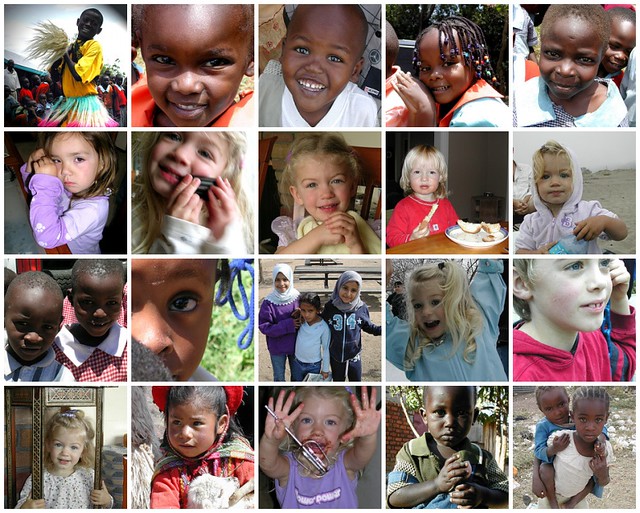


.jpg)
